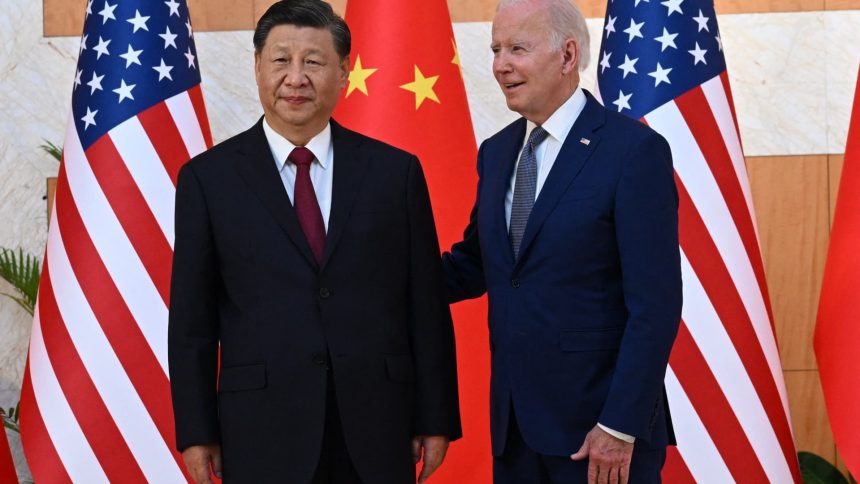Most countries prefer alignment with the U.S. over China when the White House is occupied by a Democrat, according to Gallup poll data going back to 2007.
“Significantly more countries seem to prefer U.S. leadership over Chinese leadership, at least under Democratic administrations,” Gallup said in a report released Monday, adding that a Republican executive comes with a “net approval disadvantage.”
Gallup’s report showed that in 2023, nearly half (48%) of the world’s countries leaned towards the U.S. as opposed to China — which was favored by 21% of the more than 130 countries polled. Over a fifth of the nations were found to be “strongly aligned” with the U.S., the highest rate since 2009.
Throughout most of the Trump administration, a larger share of countries had favored China, which changed as Democrat Joe Biden took office at the start of 2021.
“The magnitude of these swings comes into stark focus when one compares country alignments across years,” the global analytics and advisory firm said, citing similar party-related trends under the George Bush and Barack Obama administrations.
The trend outlined by Gallup suggests that America’s influence over the world could be dependent on the tightly contested upcoming presidential rematch between Biden and Trump.
Leading up to the election, both candidates have signaled a tough stance on China, with a growing number of Americans seeing Beijing as an enemy rather than a competitor or partner, according to a Pew Research poll released last week.
According to Gallup, the “bounce-back” under the Biden administration suggests that the U.S.’s net approval advantage over China is resilient, especially when accounting for more strongly aligned groups.
Though China made short-term country gains in relative alignment under Trump, most fell under the “weakly aligned” category.” China’s favorability peaked in 2007 as it emerged on the global stage, but increased familiarity with Beijing has not boosted its appeal, Gallup said.
Meanwhile, U.S. leadership has enjoyed a general net approval rate under the Biden and Obama administrations, compared with net disapproval rates under the Trump and last two years of the Bush leadership, the report showed.
In the back-and-forth battle for global influence, however, both the world’s economic superpowers have suffered a trend of disillusionment in one form or the other in recent years.

Gallup analysis showed that since 2017, more countries disapproved of both China and U.S. leadership than approved of them, with 2021 being an exception. The disapproval rate was the highest under the Trump administration, peaking in 2020 at 48%.
Even though this proportion has declined during the Biden administration, it remains roughly double what it was for most of the Obama administration, Gallup said.
“This trend toward an increasing number of countries expressing negative net approval of U.S. and Chinese leadership suggests a growing lack of enthusiasm for these two global powers,” it added.
The U.S. has lost much of its relative favorability versus China in countries such as Russia and some nations in Africa. On the other hand, it made gains in some countries impacted by the invasion of Ukraine, such as Poland, and several Asian countries.
While it gained approval of countries in Southeast Asia, such as the Philippines, a majority of countries in the region are likely to align with China and not the U.S. if forced to pick sides, according to a regional survey earlier this year.
Of the countries identified as world leaders in Gallup’s “Rating World Leaders” report, Germany led both the U.S. and China with an approval rate of 46%. The third largest economy in the world had the highest approval ratings in both Europe and Asia.
Read the full article here




